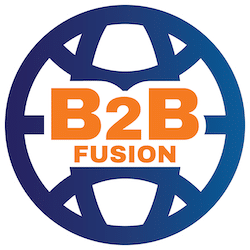Read Part 1 here, 6 use cases of ZoomInfo Copilot
Read part 2 here, ZoomInfo Copilot: Streamlining Sales Prospecting with AI and Intent Data
This is a 3 part series on ZoomInfo Copilot. In part 1, I summarized what I heard on launch day. Since that time, I wrote part two on our demo of the capability and this section below is another reference to the demo in a question-and-answer format. We’re in the process of testing this capability on our clients.
Q: How does ZoomInfo Copilot prioritize accounts for sales reps to focus on?
A: ZoomInfo Copilot prioritizes accounts by combining multiple buying signals and intent data:
- Intent data: This includes device-level activity, such as research across the web, ad engagement, review site visits, and first-party website activity on other accounts.
- Website visitor tracking: Copilot tracks visitors to the client’s website, specifically looking at engagement with important pages like pricing or specific landing pages.
- Scoops and known intent: These signals include executive changes, new hires, funding news, and other relevant events that may indicate a potential opportunity.
- Fit and engagement data: Copilot also considers firmographic data such as company size, location, and industry to determine if an account fits the client’s Ideal Customer Profile (ICP).
By analyzing and combining these different signals, Copilot creates a prioritized list of accounts that sales reps should focus on. The platform makes it easier for reps to identify accounts that have shown multiple relevant buying signals, saving them time and effort in manual prospecting.
Additionally, Copilot allows clients to customize the prioritization based on their specific needs, such as weighting certain signals more heavily or focusing on specific territories or company sizes.
Q: How does ZoomInfo Copilot use AI to help sales reps create emails for their prospects?
A: ZoomInfo Copilot leverages an AI model from Anthropic, similar to ChatGPT, to assist sales reps in creating personalized emails for their prospects. Here’s how it works:
- Analyzing context: When a sales rep selects an account to engage with, Copilot analyzes the available information about the account, such as the buying signals, intent data, and any additional context provided by the rep.
- Generating email content: Using the analyzed context, the AI model creates a draft email tailored to the specific account and persona. The email is designed to be relevant, engaging, and personalized based on the available information.
- Customization options: Sales reps can further customize the AI-generated email by selecting specific signals or additional context they want to emphasize. They can also adjust the tone, length, or specific content of the email.
- Efficiency and consistency: By using AI-generated emails, sales reps can save time on drafting messages from scratch while ensuring a consistent quality and personalization across their outreach efforts.
Q: What is the pricing structure for ZoomInfo Copilot?
A: Copilot has three packages: Pro, Advanced, and Enterprise. The Advanced package, suited for SMB clients, starts at $22,000 per year for three users, with additional users costing $1,500 each. The Pro package, which only includes company and contact data, starts at $15,000 per year. Ask your rep for specific pricing for your situation.
How does this line up to your experience if you are part of the beta program or considering using CoPilot for your own uses?
Jon Russo is a three-time global Chief Marketing Officer in successful public and private SaaS companies in Silicon Valley, New York City, and Luxembourg. Jon has led and experienced 3 successful exits with private company stints as head of marketing.
Today, he leads B2B Fusion, a 6sense partner and agency designed to optimize marketing technologies and business processes to drive effective revenue growth across technology, healthcare, and financial services.
